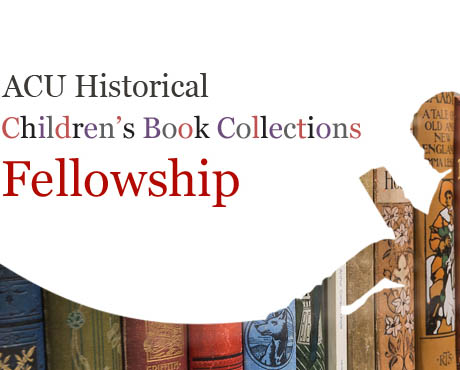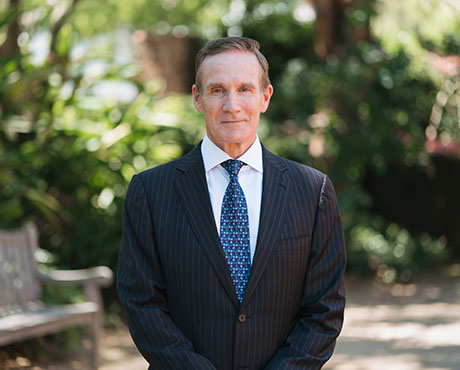
Research partnerships for the common good
News 23 SeptemberA message from Interim Executive Dean, Faculty of Education and Arts, Professor Phil Parker
08 September 2021
Share
During National Child Protection Week this week, many institutions and professionals are focusing on what they can do to prevent child abuse and neglect.
There are many ways to prevent abuse, including statutory requirements such as pre-employment screening (Working with Children checks). These checks look at past behaviour (including a person’s criminal history) to identify where a person is unsuitable to work or engage with children. ACU is currently reviewing the pre-employment screening requirements. Academic and professional staff are not generally required to have a Working with Children check; however, there are some types of roles and positions at ACU which do require staff to obtain a check, as outlined in ACU’s Protecting Children, Young People and Adults at Risk Policy.
Mandatory reporting is another tool to keep children safe. Mandatory reporting laws require specified people to report suspected abuse and neglect to government child protection services in Australia.
We know that these statutory requirements are still only a small part of what is needed to protect children. Other measures require a whole-of-organisation approach. While that approach may be more difficult to implement, it provides a stronger foundation to preventing abuse and harm. These measures include improving the culture of child safety within organisations, building skills in professional practice, and including children and young people in participatory processes.
Another significant step in creating safe places for children to learn, live and play is to adopt strategies that support all families and their children. Professor Daryl Higgins, Director of the Institute of Child Protection Studies, is working with a range of stakeholders to raise awareness of systemic changes that can implement these strategies.
We know a lot about the risks of child abuse, such as exposure in the home to domestic and family violence, parental mental health, and drug and alcohol misuse, which expose children and young people to harmful environments. Preventing child maltreatment can be enhanced by a public health approach that draws on the trust – and accessibility – of services where children and families are already engaging, like early childhood centres, schools and health/allied health services.
ACU is well known for its pre-service training in all of these areas, and so we need to keep a priority focus on equipping students to identify and address risks and engage in safety conversations across these different areas of professional practice. ACU’s Institute of Child Protection Studies is working with researchers, policy makers and community leaders to further strengthen a public health policy approach to child protection.
Our university has an opportunity to reach professions who work with children and young people through our students, whose vocation will put them directly in touch with children. Our courses in education, psychology, behavioural sciences and nursing are excellent opportunities to raise awareness of how to improve child safety.
As a teaching institution, ACU can help students understand how to support conditions of safety for children and young people. ACU can play a big role in raising awareness among our students of the very tangible ways that they and the organisations they work for can keep children safe, such as:
We also offer staff online modules that build skills in safeguarding children: the ACU Working with Children modules.
To find out how you and your team can implement best practice child safe standards, please contact National Safeguarding Officer Taleah Neowhouse.

A message from Interim Executive Dean, Faculty of Education and Arts, Professor Phil Parker

The library is supporting the ACU Historical Children’s Book Collections 2025 Fellowship. It is an opportunity to conduct research on our historical collection of children’s books, located at St Patri...

On 24 June ACU will transition to the new EBSCOhost. This will result in a new look and feel across some of our most popular databases. Learn more about the changes and what action may be required of ...

Advance your career in teaching and learning with the Graduate Certificate in Higher Education. Enrol by 22 June to get started in Professional Term 5.

Viva Engage is here. Access it easily via Microsoft Teams.

Include an additional survey item in the Student Evaluation of Learning and Teaching (SELT) survey for units that are offered in ACU Online Term 2 (202536).

A new Adjunct and Honorary Titles Policy and Procedure has been approved and is now in effect at ACU.

Teaching staff are encouraged to check their units have been correctly linked to their names for the Student Evaluation of Learning and Teaching (SELT) surveys in upcoming teaching periods.

ACU has three student modules: the Academic Integrity, Respectful Relationships, and Protecting our Children modules. Semester 1 students must complete their modules by 1 July to access their results ...

Please be aware of the following changes to payroll processing dates.

A message from the Chief Operating Officer Patrick Woods.

As part of Student Administration's commitment to service excellence, AskACU will be running on-campus re-enrolment drop-in sessions in July, while CMAS enhancements will improve information available...

The Student News and Events bulletin is sent to all students, nationally, and includes a broad cross-section of news, announcements, events and stories from across the university. The May edition is o...

Say goodbye to Workplace and hello to Viva Engage. Learn about our new community structure and all-staff community.

An update from the Executive Dean of Law and Business Professor Andrew O'Neil.

A reminder to all academic staff that the mandatory Notice of Intent, for those intending to apply for promotion in the 2025 round, must be submitted by 11.59pm this Friday (30 May).

Expect a few email notifications as we prepare to welcome you to Viva Engage next week.

Include an additional survey item in the Student Evaluation of Learning and Teaching (SELT) survey for units that are offered in Professional Term 4 (202547).

Register for these 15-minute sessions to learn more about the variety of online researcher profile platforms and what is involved in setting up, linking and updating your profile.

Lecturers-in-charge can make a direct determination of Poor Academic Practice (PAP) for students who engage in minor forms of academic misconduct. Learn why they can be valuable to staff and students.
Visit Service Central to access Corporate Services.